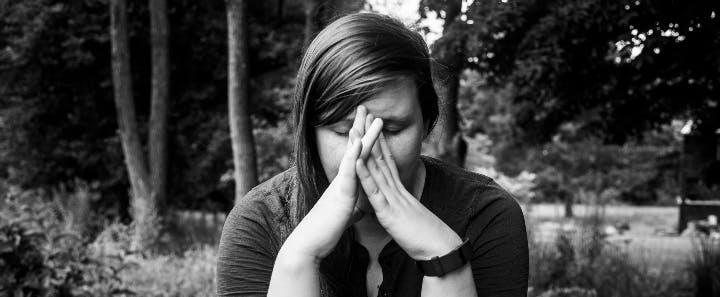Too Rich to Be Poor, Too Poor to Get By
– Lili Holzer-Glier
Millions of American families have incomes just above the federal poverty level—making them ineligible for some benefit programs—but they still barely scrape by.
A line of wilting people snakes across the busy Brooklyn sidewalk. Families cluster beneath a few sparse trees and flatten themselves under narrow awnings, some sinking to the ground, seeking a sliver of shade. Most people have been waiting two to three hours to pick up a small bag of groceries at the Brooklyn Faith SDA Church food pantry in the East Flatbush neighborhood. “Trust me,” says pantry director, Barbara Joseph, “People would not be here if there wasn’t a real and pressing need.”
The New York State unemployment rate fell to 4.7% in May 2016, its lowest level since 2007, but many families are still struggling to find enough full-time work to keep a roof overhead and food on the table. Some 1.4 million New Yorkers struggle with food insecurity, and although Food Bank For New York City delivers 300,000 pounds of food per day, that is still not enough to close the yawning meal gap.
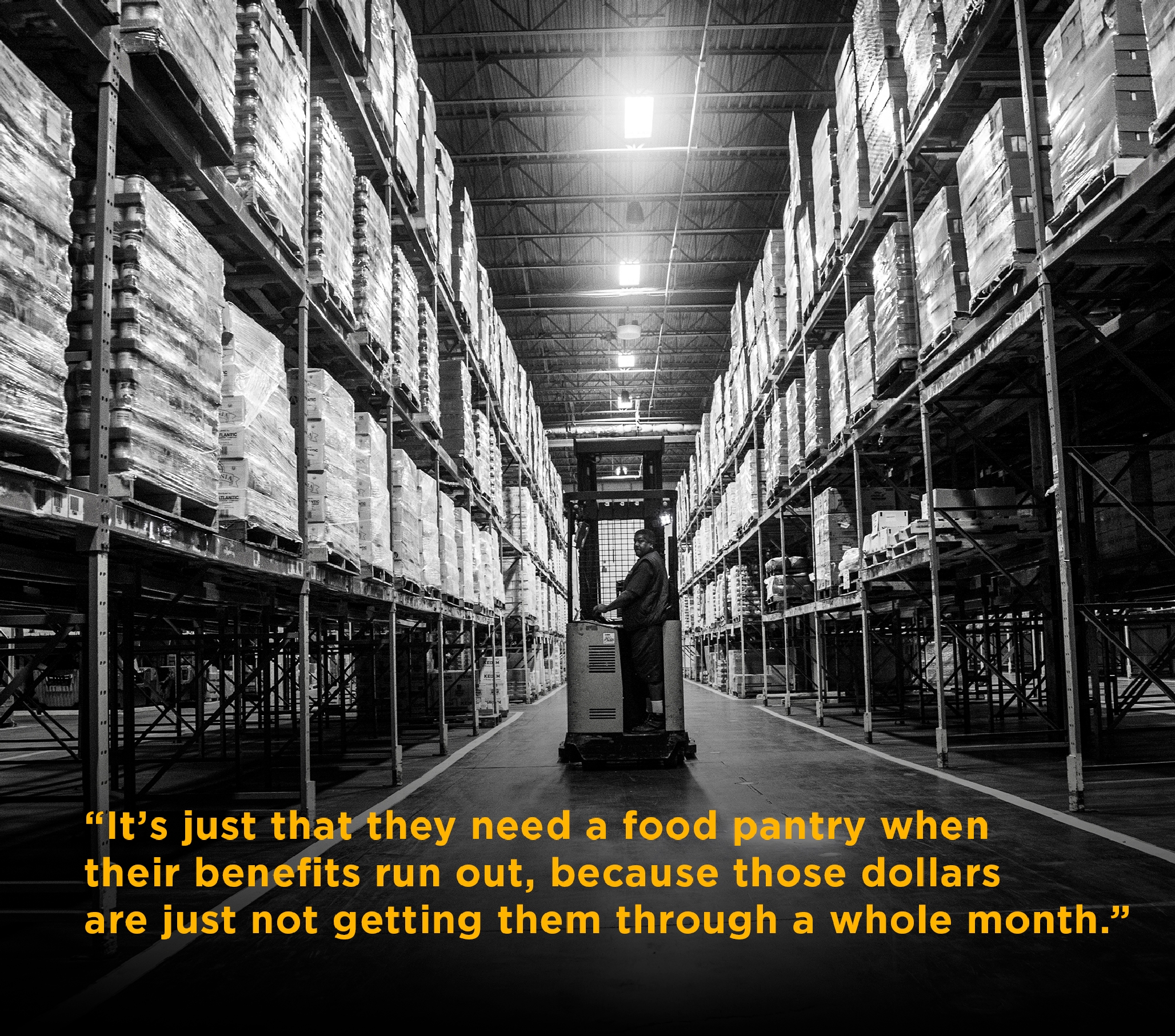
“About 60% of New York City residents who are using food pantries are also getting SNAP benefits,” says Food Bank For New York City Vice President for Research and Public Affairs Triada Stampas. “It’s just that they need a food pantry when their benefits run out, because those dollars are just not getting them through a whole month.” Of the other 40%, many are not poor enough to receive food stamps, but need to come here nonetheless.
For a family of three to qualify for food stamps, their gross monthly income must be at or below 130% of the poverty line. In 2016, in order to qualify a three-person family must make less than $2,177 a month, or about $26,100 a year.
In a slowly recovering post-recession economy, many low and middle-income families earn too much to receive government assistance but bring in barely enough to meet basic needs. In places like New York City where the cost of living is high, families just above 130% of the poverty line must depend on emergency sources of food like pantries and soup kitchens in times of need.
According to the Hamilton Project’s paper A Dozen Facts About America’s Struggling Middle Class, “In 2012 more than 24 percent of struggling lower-middle-class children ages twelve to seventeen (or approximately 1.7 million children) lived in a household identified as being food insecure.” Most of these families struggling with food insecurity are working families. According to a recent study by the USDA, in 2010-2011, 75 percent of food-insecure families with children had one or more working adults – 60 percent had an adult working full-time. There are twice as many employed adults – many of them college-educated – seeking emergency food assistance than there are homeless people. And many working families, whose small paychecks preclude savings, are one lost job or serious illness away from financial disaster.
In a slowly recovering post-recession economy, many low and middle-income families earn too much to receive government assistance but bring in barely enough to meet basic needs.
“We’re in an economy that has been upended and restructured by the recession,” says Food Bank For New York City's Triada Stampas, “Low-wage work is no longer a guarantee against hunger. This sector is called emergency food because the purpose was considered to be the resource you turn to in an emergency – you lose a job or some misfortune happens in your life and you find yourself temporarily in need. The truth of the matter is, we are no longer exclusively providing emergency food, our network, our system is serving chronic need.”
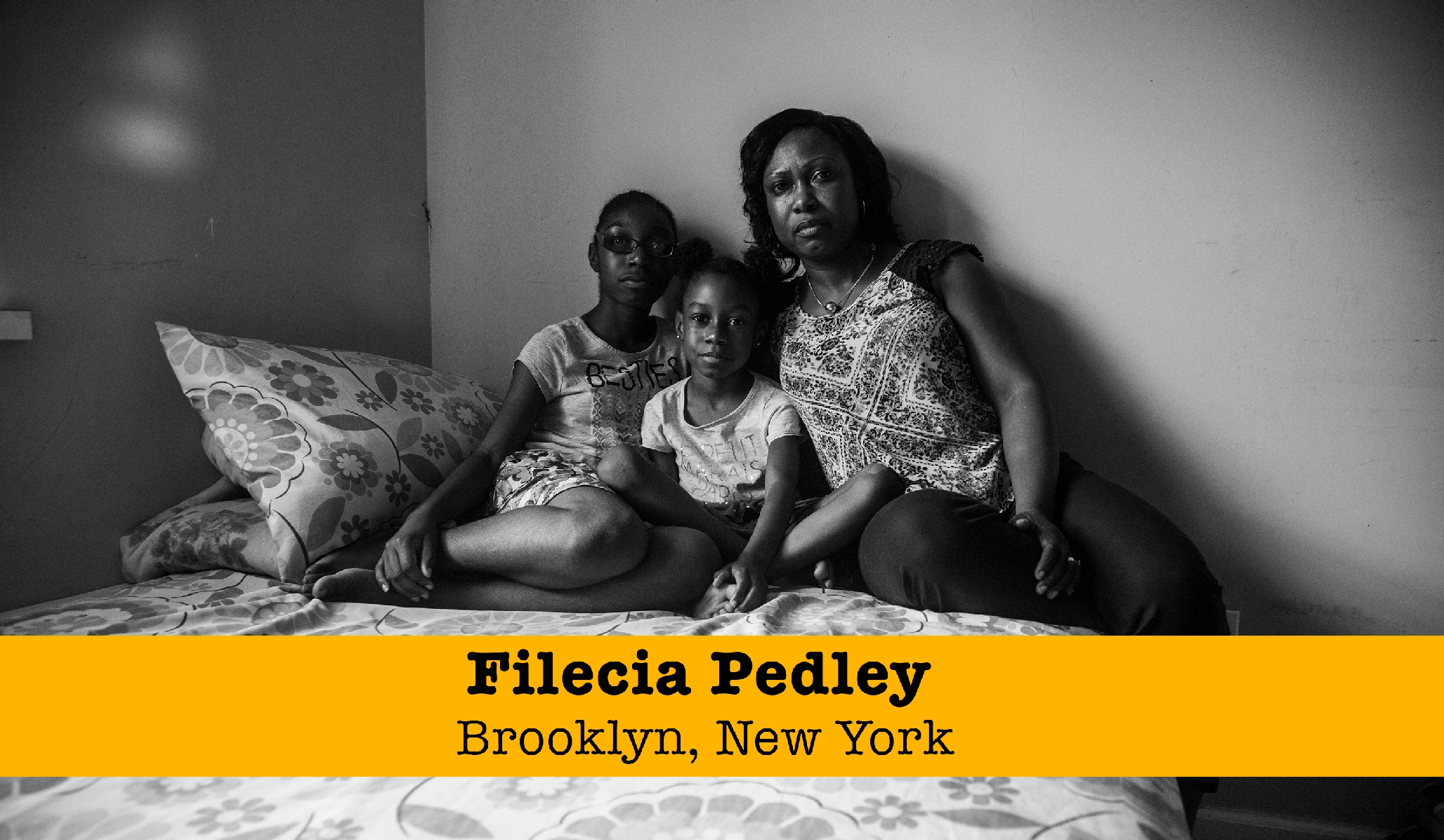
I’m a mother of four children. I work for the City – for the Department of Consumer Affairs. I’ve been there for 14 years. I’m married; my husband is self-employed as a computer programmer. Even though we’re both working and I’m working full-time, we still have to go to the food pantry in times of need – usually once or twice a month.
People really depend on the pantry. I see hundreds of people just pouring in every time I’m there. I see lots of people that have good jobs like nurses that are still going to the pantry…really it’s people from all walks of life. There have been times that we’ve gone to the pantry and there’s nothing there. The shelves are empty, maybe just enough there for one dinner. The demand sometimes is just greater than the supply.
Food cost is expensive in New York City. I’ve never gotten help with my kids as far as vouchers, food stamps, daycare. Every time I applied I got denied because they told me I was above the minimum to qualify. And I’m like, what’s the minimum? Because once I get done paying rent and bills there’s nothing left. Why do they deny parents that are working? It’s unfair in some ways because I want to work and make a living so why can’t I get assistance with daycare? Why can’t I get assistance with food? Why is it only people that aren’t working are getting this help?
Sometimes people say to me, ‘You’re working, you shouldn’t be going to the pantry.’ But what am I supposed to do when I go to the supermarket and I can’t afford anything there?...If paychecks went up at the same rate food costs go up I don’t think so many people would be depending on these pantries.
If I fall behind on my rent the first thing I do is run to the pantry and make sure there’s food in the kitchen to get these children fed. After we pay for rent, utilities, credit cards, phone, cable, insurance, gas, Metrocards, and food we’re close to $4,000 per month. I make $40,000 a year and my husband is freelance so that’s all of our money. We have nothing at the end of the month to save. We try to cut everywhere we can. My husband got rid of his cell phone – we just share one now. We cut down to basic cable. We leave the lights off as long as we can every night. It’s always a struggle.
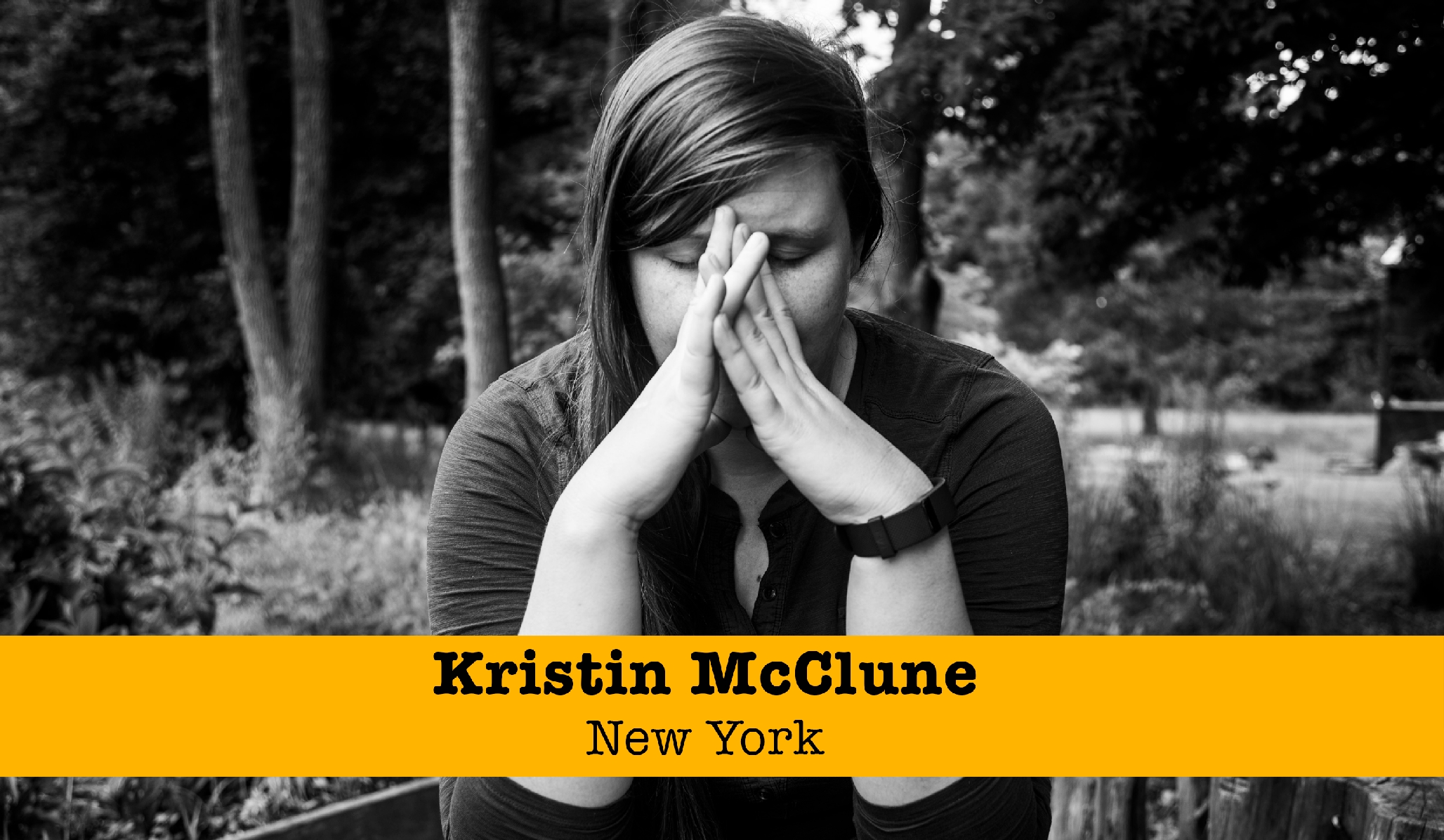
I have a bachelor’s in history, and minors in anthropology and clinical nutrition from Ithaca College. My first job out of school was in AmeriCorps – if you ever want to find out what it’s like to live in poverty and work all the time – that was one of the lowest points of my life. I lived in this unpainted basement with cold water and no heat, and I was so much thinner than I am now because I wasn’t eating. I was helping people all day long who were in my position, and I had to make like I wasn’t in that position. You can’t really live around here for $800 a month. You can’t really live anywhere on that amount of money.
I now have four part-time jobs working at different libraries and as a development assistant. I start out my morning at five o’clock and the first thing I do is get on job sites, and look around, send out my resume. I’m up to, since I graduated, almost 2,600 applications. I have a separate email account for all the rejections. And if you don’t think that’s a self-esteem killer, it is. And it’s really changed who I am. I used to be happy all the time – my nickname used to be Sunshine. I’m just getting back to the point now, after finding a really good therapist and life-coach, where I’m not considering suicide.
I work these four jobs, I do gardening on the side, I clean on the side, I watch people’s children on the side. If the American dream was attainable through hard work alone, I would be a millionaire.
I haven’t had my car inspected since 2014 so every time I get in my car and drive anywhere, I’m taking the risk of getting a ticket. It won’t pass inspection, and I don’t have the money to get the repairs.
I have $40,000 in student loan debt. I’m stressed all the time. It affects my sleep, it affects my mood, it affects my confidence…I don’t have paid time off or health insurance from any job and I have the awful insurance that New York State offers, so I can’t get seen by anybody unless it’s the emergency room, or unless I want to travel one hour.
In a good month I clear $1,500, a usual month is like $1,200, and in a bad month it’s less than $1,000. It’s very hard to live on. I haven’t had a pair of jeans that were new to me since I was in high school. My shoes are falling apart so I glue them back together and I just keep carrying on.
I can’t get any assistance either – I make too much money. I make too much to get anything, other than I don’t have to pay for the health insurance I can’t use anyway.
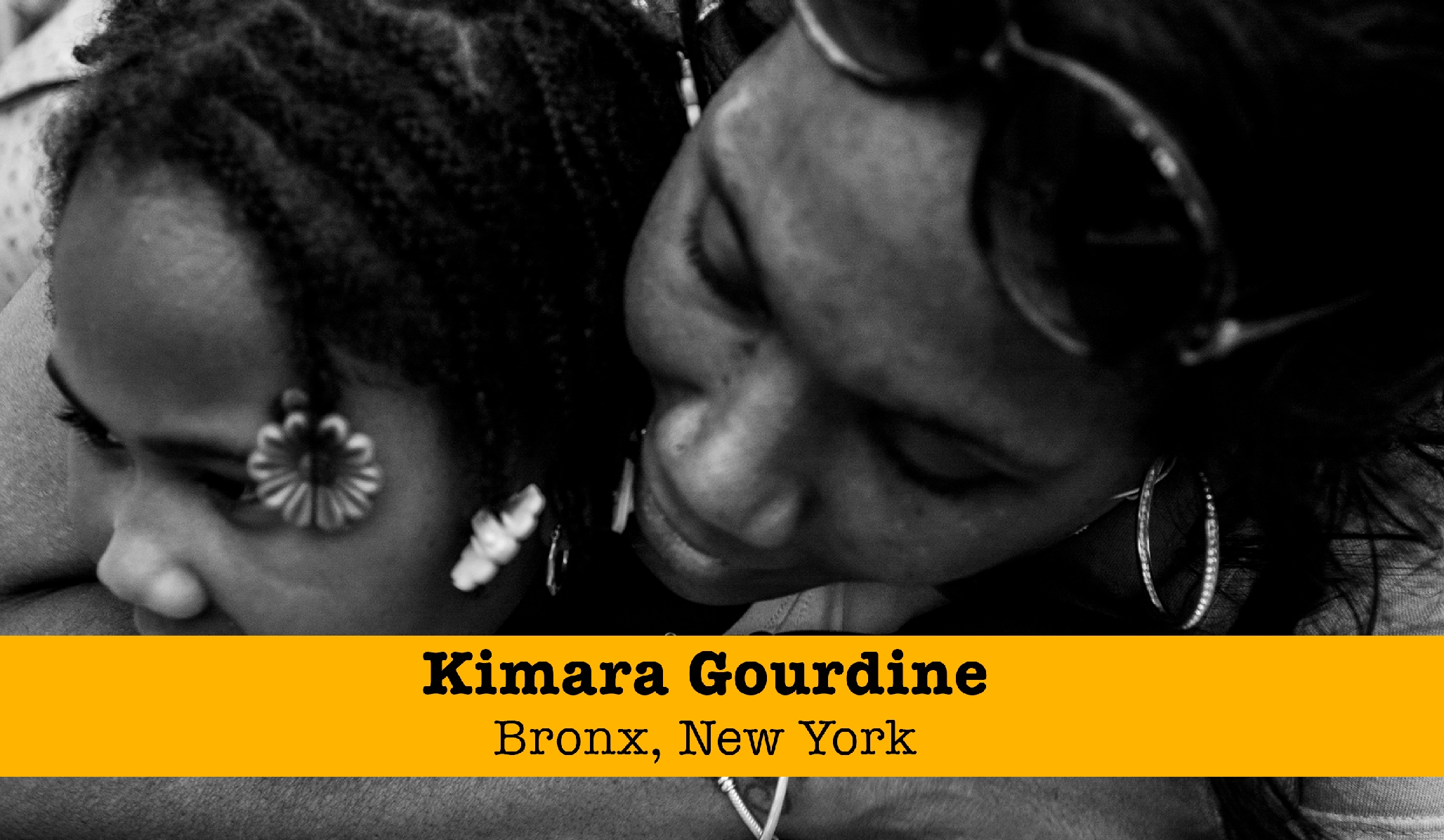
I’ve got five kids of my own and two step-kids. I used to be a caretaker in a psych ward but I got hurt real bad and couldn’t afford the surgery. My boyfriend works maintenance at a hospital but I ain’t worked since 2009. It’s tight but we make it work. There’s always some things up here in the Bronx you can get into off the books if things are tight.
I come to the food pantry all the time because sometimes after you pay the rent you’re trying to decide whether to feed your kid the old leftovers in the fridge or that apple that’s been sitting on the counter a little too long.

The first day we did a food pantry in 2014 we had 15 clients come in, and in June this year we served over 900 people…These are working people. The first time my husband helped me with the pantry he saw people driving up in their nice cars and said he didn’t understand why they were coming to the pantry.
I have people on my pantry line that take on foster children just because they’re going to get that extra $600 per month. I have parents that pull me aside and say, “Miss Jeannette do you think you could give me a bag of groceries because I don’t get paid until next week?” The majority of these people are living check to check. It means they can never save any money, they can never take a vacation, they barely get to go out and if they do, they’re just going down the block. This is the life of many of these people.
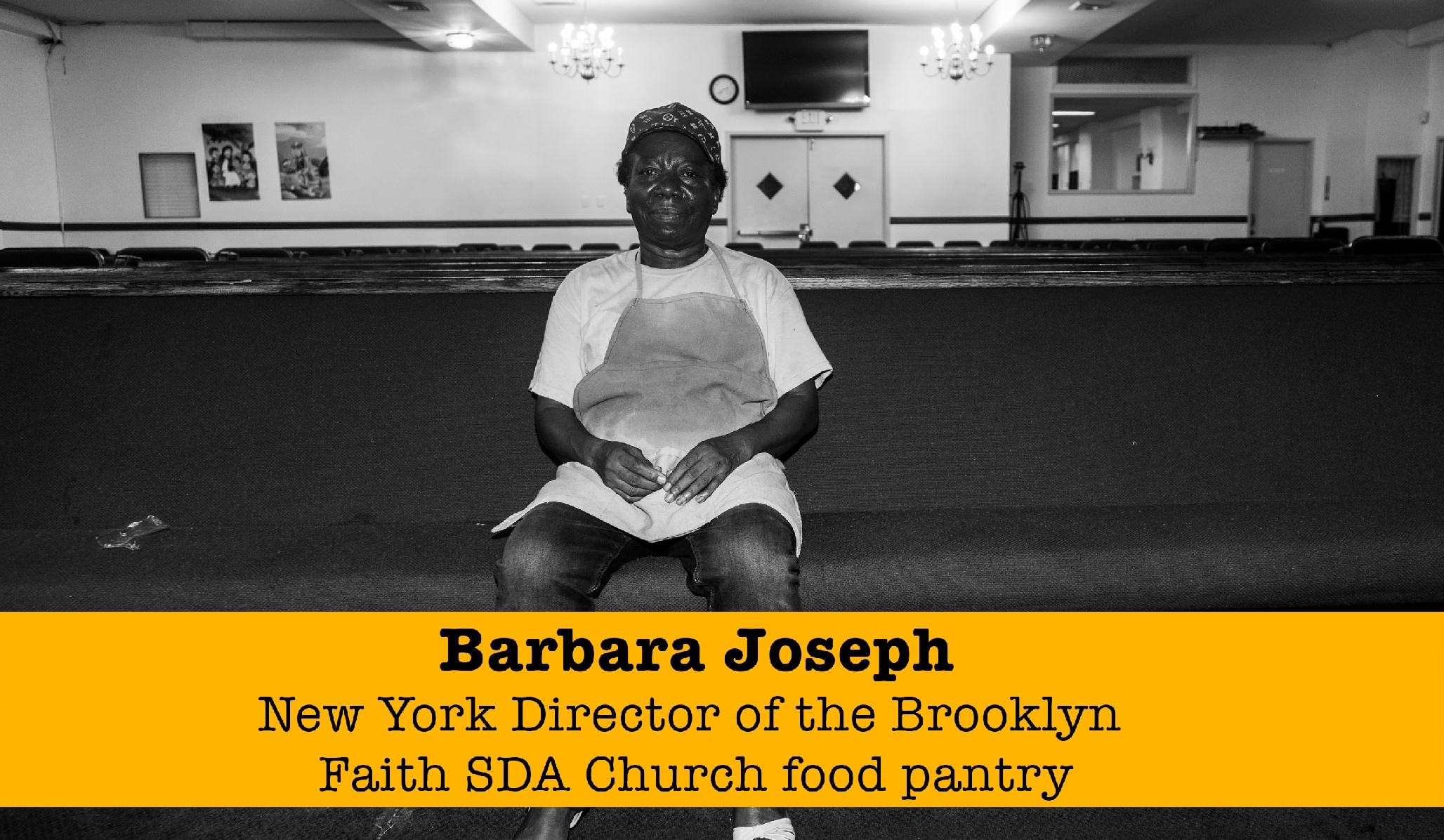
We see regular working people all the time that lost their job and all the sudden don’t have enough to get by. We’re all volunteers that work here so many of us are living paycheck to paycheck.
There’s definitely been an increase in demand for food recently. Most people that come here want to work, they just cannot find jobs. Also, a lot of the people we serve are the working poor – people that are working full-time but it’s just not enough. We had 400 people line up for the food pantry yesterday, standing in the hot sun for hours.

I raised my daughter as a single mom, and I raised my son as a single mom. When I had a good job and was able to work full-time, it wasn’t that hard. I did house cleaning – you can pick up some extra dollars.
But now physically I can’t do that any more and it’s so frustrating. My doctor diagnosed me with fibromyalgia in 2009, but they never considered me disabled until 2012. I was going to school part-time in-between, and I did finish my associates in human services, and before that, I was doing dental hygiene.
Some days are better than others. My income is a quarter of what it used to be, and the cost of living has gone up. When I first moved up here you could get an apartment for $600 and now it’s like $900, and then you have to pay utilities on top. But when you are living on $1,100 a month, you can’t!
My son and I live on a really tight budget. He’s working at a local restaurant this summer but he doesn’t make much. The plan is for my son to do two years of college and then go on to a four-year program. But we need a car for him to go. I have an old 1994 Mitsubishi station wagon. The muffler system’s shot and you can’t get the parts for it. Do I go to the custom muffler shop and pay $1,200? I can’t, that’s my whole income for the month! The car needs new tires too, so it’s like, okay, what can I not pay this month so we can get tires on the car?
The next struggle we’re going to have is when he goes to college. My caseworker told me because he’s going to school full-time, he can’t get food stamps. It doesn’t go by income when they’re in college. I end up with $1,167 a month total – that’s Social Security and disability.
This is the curse of my life to move into a mobile home…but that’s where I am now. Living up here in some ways is a lot easier, but for me because of mobility issues it’s a lot harder. When I lived in New York City I walked everywhere, or you can hop a bus or subway, but here you have to have a car. It’s falling apart but I have a car. You know, that’s an added expense. Budget goes down little by little, and costs go up.
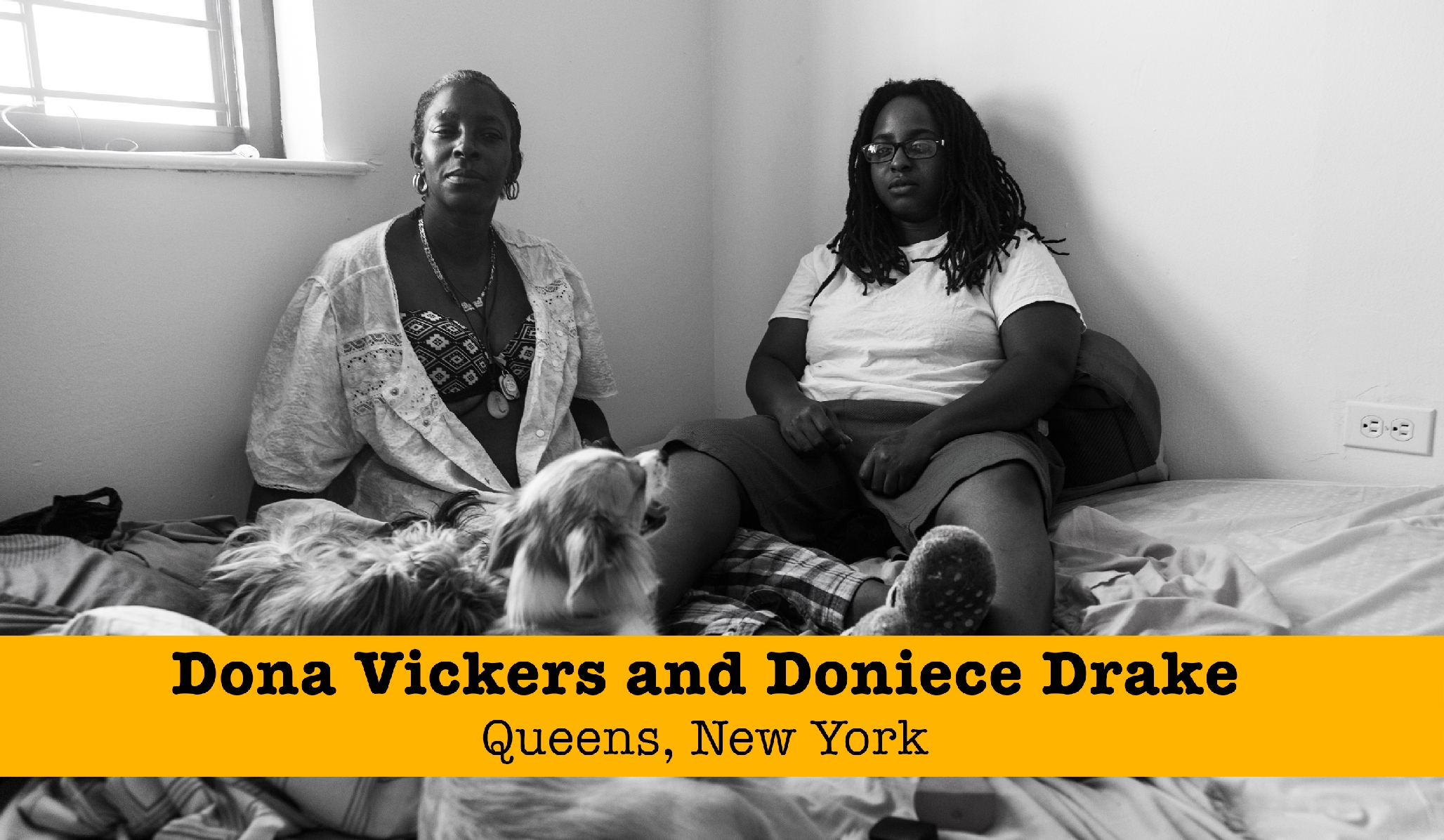
Dona: A few months ago, I started feeling really sick and before I passed out I called my daughter, Doniece, to come help me. Thank God she answered her phone.
Doniece: I came running back to the house and I found her passed out, half on the bed, half on the floor having a seizure. She had a massive stroke and like 10, 15 seizures before the doctors could get it under control. She went blind…couldn’t use her hands. Her memory is still really cloudy. This was back in March. I keep waiting for her to come back to normal.
Dona: I go in the store and I don’t know which way to go. I get lost. I just hope I can see someone I know so they can help me home.
Doniece: I was driving school buses full-time and I asked my boss if I could come into work 10 minutes late because my mom was in the hospital having seizures. He fired me on the spot.
My girlfriend lives with us and helps out – she works with kids at an afterschool program. And my little brother he’s living here too – we’ve only got a two-bedroom so he sleeps in the living room. He’s still in high school but he does landscaping during the summer. We can’t afford a car so he skateboards between landscaping jobs but, man, every penny helps.
Food was starting to get real tight. I’ve been applying for food stamps and we finally just got approved – we start getting them in August. Thank you, God.
* * *
Families likes the Vickers, who were living comfortably before Doniece lost her full-time job, highlight the precariousness of America’s middle class, where one lost job can send a family skidding towards hunger. So does the Pedley family, where both parents have been working for decades yet still find themselves needing help from the local food pantry because they can’t make their paychecks stretch quite enough to feed their kids. Then there are college graduates like Kristin McClune who entered the work force in a recession and despite her credentials and tenacity cannot find full-time work and is barely making ends meet while working part-time jobs.
“The recession officially ended at the midway point of 2009,” says Food Bank For New York City’s Triada Stampas, “Just because economists say the economy is now out of recession, the recovery certainly has not been a rising tide lifting all boats, some people got stranded ashore. People were beached and never got a chance to float again and we’re still seeing that today.”
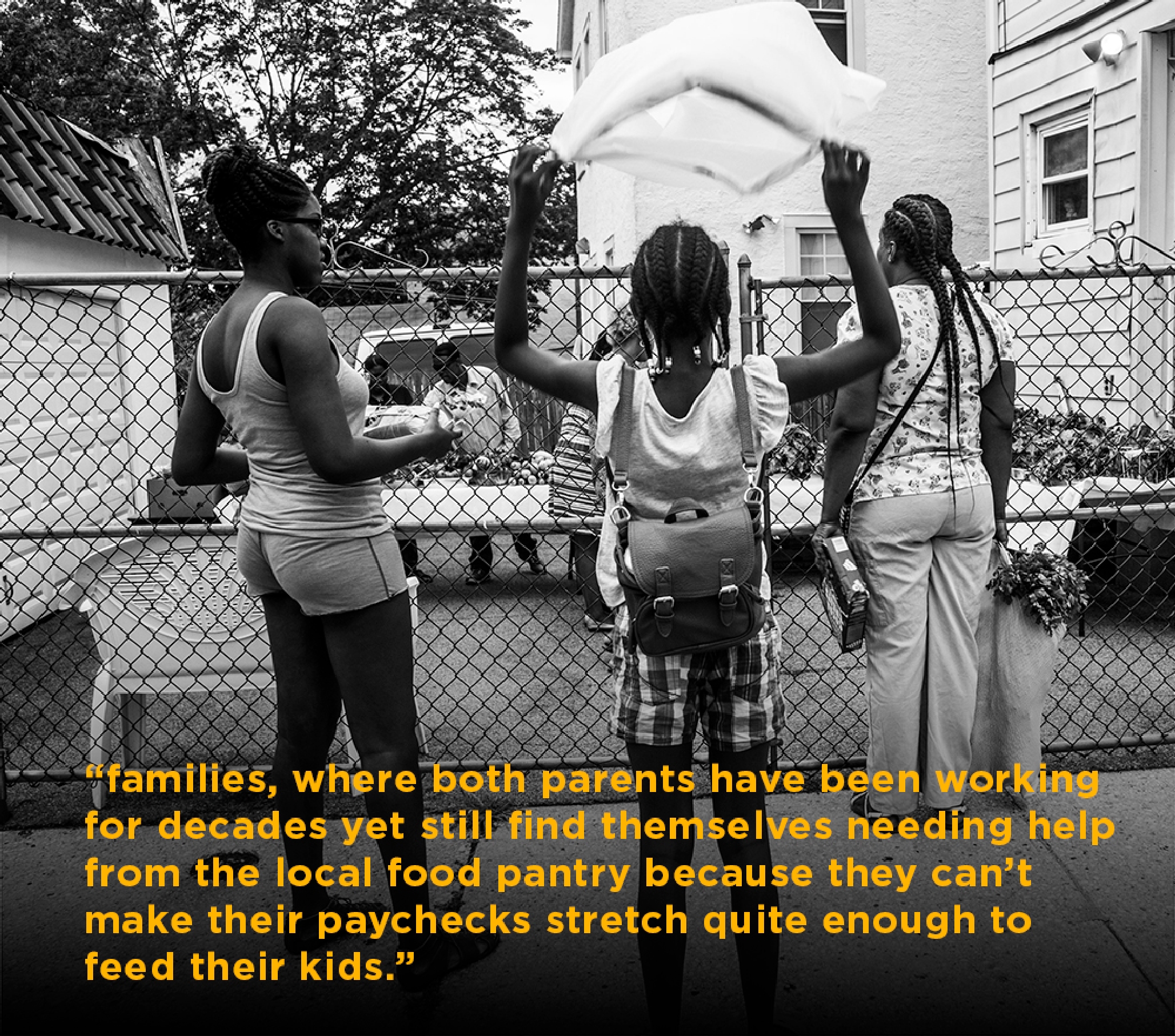
* * *
Lili Holzer-Glier is a photographer based in Brooklyn, New York. Her work has appeared in The New Yorker, Vogue and The New York Times. Her first book, Rockabye, documents the Rockaways post–Hurricane Sandy and was published in 2015 by Daylight Books.
